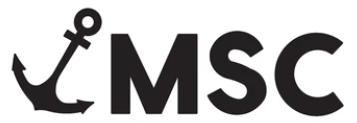
We know, insurance... riveting stuff, eh? Well, it's time to put on those reading glasses and be an adult. A little insurance knowledge can go a long way in the form of $$$.
What boat insurance is required?
While only two states – Arkansas and Utah – require "boat insurance," banks require boats being financed to be insured, and marinas also require between $300,000 and $1 million in liability insurance for boats being stored.
Aside from it being mandatory in many instances, it’s also common sense to protect your investment, or at least protect yourself when on the water. Some people might think homeowner’s insurance covers boats sufficiently, but such a policy is limited in size and scope, and doesn’t adequately cover losses that may occur with a boat, especially when it is in use.
Calculating the Cost
You can generally expect to pay about 1.5% of the value of your boat on your boat insurance premiums each year. For example, you can expect to pay about $750 annually for a $50,000 boat, and it's only logical that you'll pay more in a state prone to hurricane damage.
Understand the Basics
AGREED VALUE VS. CASH VALUE
Cash value policies pay the market value for your boat, while agreed or stated value pays an amount agreed upon between you and your insurer, which is recommended for new or late-model boats. As boats age, switching to a cash value option can save money.
TYPES OF COVERAGE
Liability insurance is the bare minimum, and if you have a high-powered boat, you’ll want to consider exceeding the $1 million minimum required by many marinas. It is split into three categories: property damage liability, bodily injury liability, and fuel spill liability. If anyone is injured in a boat accident involving your vessel and you are deemed legally responsible, bodily injury liability will cover costs associated with those injuries. Fuel spills can result in costly cleanups and fines. The most comprehensive policies cover both separately, while others pay for fuel spills out of the overall liability limit of the policy.
Hull coverage covers physical damage to the boat itself, and typically also covers trailers, equipment, motors, and accessories.
Collision coverage pays for damage incurred in an accident, minus the amount of deductible.
Uninsured/underinsured motorist coverage applies to damage caused by a motorist who is not appropriately insured. The standard minimum coverage is $10,000.
READ THE FINE PRINT
One failed part can literally sink your boat. If that part failed due to “wear, tear, and corrosion,” many insurers won’t pay for the loss. It is important to know this upfront and adjust your policy to cover the level of risk you are comfortable with at a price you are willing to pay.
If your boat is destroyed and needs to be salvaged, will your insurance cover that cost? This is a particularly important question to ask if you live in an area prone to hurricanes.
It’s also important to know if your insurer will pay for wreck removal.
Even if you only have liability coverage, it can cover all these instances. It’s a conversation you need to have with your agent or broker.
Furthermore, determine whether or not your coverage includes your trailer and other items associated with your boat.
How to Save on Insurance
Get educated: Safe boaters save insurance companies money, so they offer discounts for those who pass a boating safety course from the US Coast Guard or US Power Squadron.
Keep it clean: Your driving record, that is. Premium discounts are often available for those with driving records free from moving violations. Show off your skills: A boat resume can exhibit your boating experience.
Assess your liability limits: Depending on how you use your boat, you might not need to have a high liability limit, which comes at a cost.
Increase your deductible: Higher deductibles mean lower premiums. If you’re not concerned with paying more out of pocket in case of a claim, it can decrease your premiums on the front end.
Lay up savings: If you lay up your boat, meaning you decommission or winterize it, tell your agent or broker, as many insurers provide a premium credit for lay up periods.

